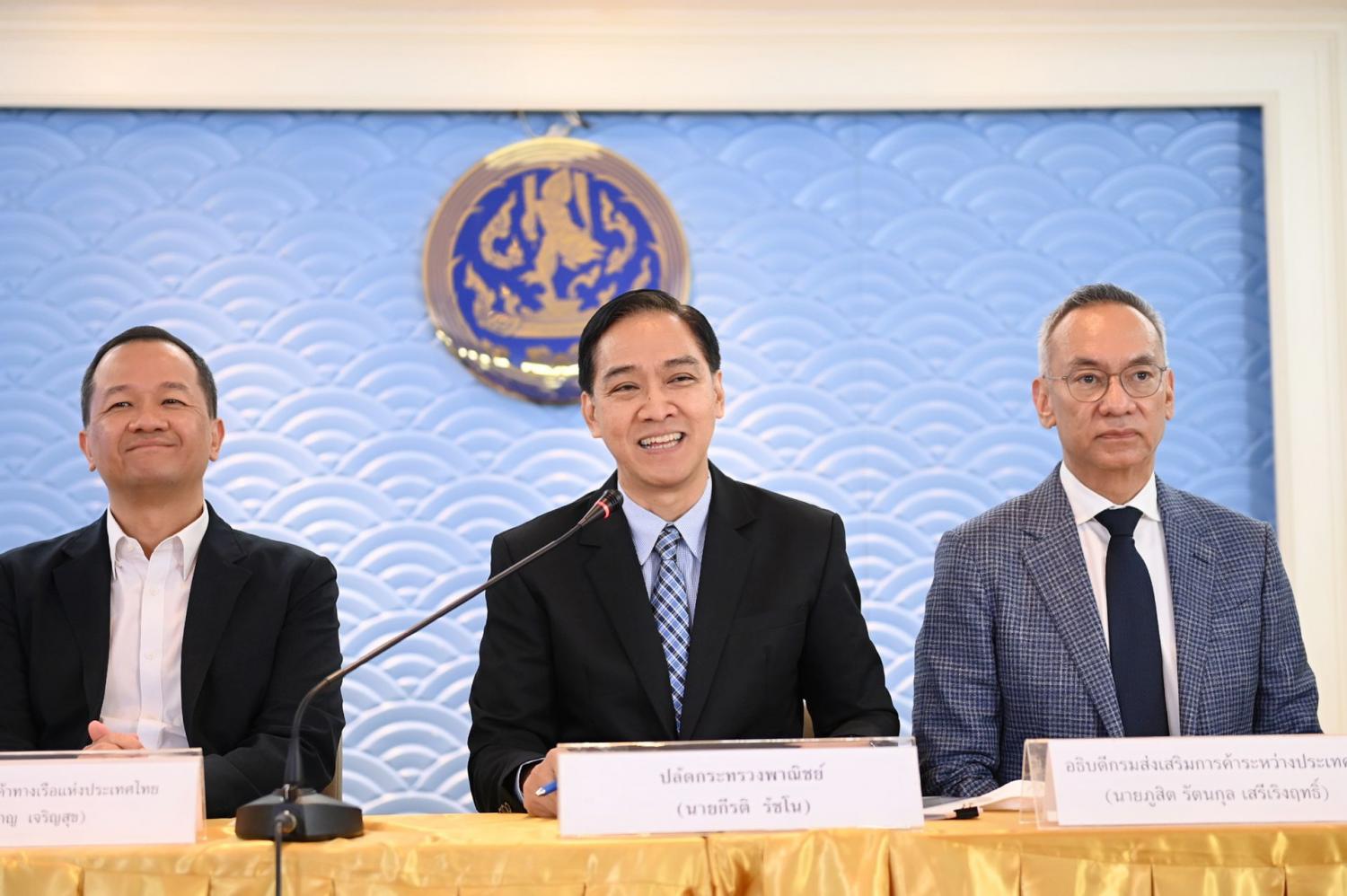
The Commerce Ministry wants to increase the value of exports by another 19.4 billion baht (around US$550 million) in the second half, providing support through the hosting of up to 350 export stimulus activities.
Speaking on Thursday after a joint meeting with commercial counsellors overseas and representatives from the private sector, such as the Thai Chamber of Commerce, the Federation of Thai Industries (FTI), and the Thai National Shippers' Council, Keerati Rushchano, director-general of the Foreign Trade Department, said given several export risk factors this year, the meeting agreed on a contingency plan to stimulate shipments in the second half of the year.
The plan needs to be drafted so that target markets can be identified, he said. Target markets would include the Middle East, South Asia, Cambodia, Laos, Myanmar, Vietnam and China, which have growth potential amidst the global economic slowdown.
A "war room" task force is going to be established to expedite exports to these markets, with more than 350 activities planned for the second half, said Mr Keerati.
"Those 350 activities are expected to help generate income for the country of more than $550 million or 19.4 billion baht in the second half," he said.
The ministry expects to proceed with plans to open new markets, maintain existing markets, and revive old markets through key strategies such as accelerating the formation of trade representative groups to expand market potential; promoting cross-border e-commerce; negotiating business partnerships both offline and online; boosting exports of bio-, circular, green products and new innovations; and promoting business matching for high-value services, especially digital content, hotels, restaurants and catering, and restaurants with the Thai Select logo.
The ministry also aims to tap more into secondary city markets, especially in Asean, the US, and Europe.
Mr Keerati said the $550 million target for the second half is expected to boost the total export value for this year to around $290-293 billion, surpassing the original target range of $289-292 billion.
Chaichan Chareonsuk, chairman of TNSC, said Thai exports face numerous unpredictable factors, such as a sluggish US economy, the slow pace of China's economic recovery, and the fluctuating value of the baht.
"It is necessary to intensify export promotion efforts in the second half. Both the government and private sector must work together and believe that we can achieve the target growth of 1-2% for the whole year, now that exports are believed to have reached their lowest point in January this year, while food products such as rice and sugar, as well as automobiles, are expanding successfully. Additionally, we still see opportunities for growth, even in the US and EU, although the growth rate may be lower, while new markets such as Central Asia and Latin America still show good potential for growth," said Mr Chaichan.
Poj Aramwattananont, vice-chairman of the Thai Chamber of Commerce, said the most worrisome issue for exports is the increasing production costs. Exporters have faced rising costs from energy, gas prices, coal, electricity, and the new government's announcement of a minimum wage increase to 450 baht per day.
"It is dangerous if the private sector fails to control its costs," he said, adding that higher wages would also prompt new investors to hesitate to invest in Thailand and existing ones to consider relocating to other countries.
"The minimum wage increase should be determined through a tripartite committee, not solely based on political policies. Political parties should listen to business owners' voices, not just the employees. The ones who will benefit the most from this wage increase are foreign workers, who number over 3 million, while skilled Thai labour already earns over 450 baht per day. The industries that will be most affected are agriculture, SMEs, tourism, and service sectors that require intensive labour," said Mr Poj.







